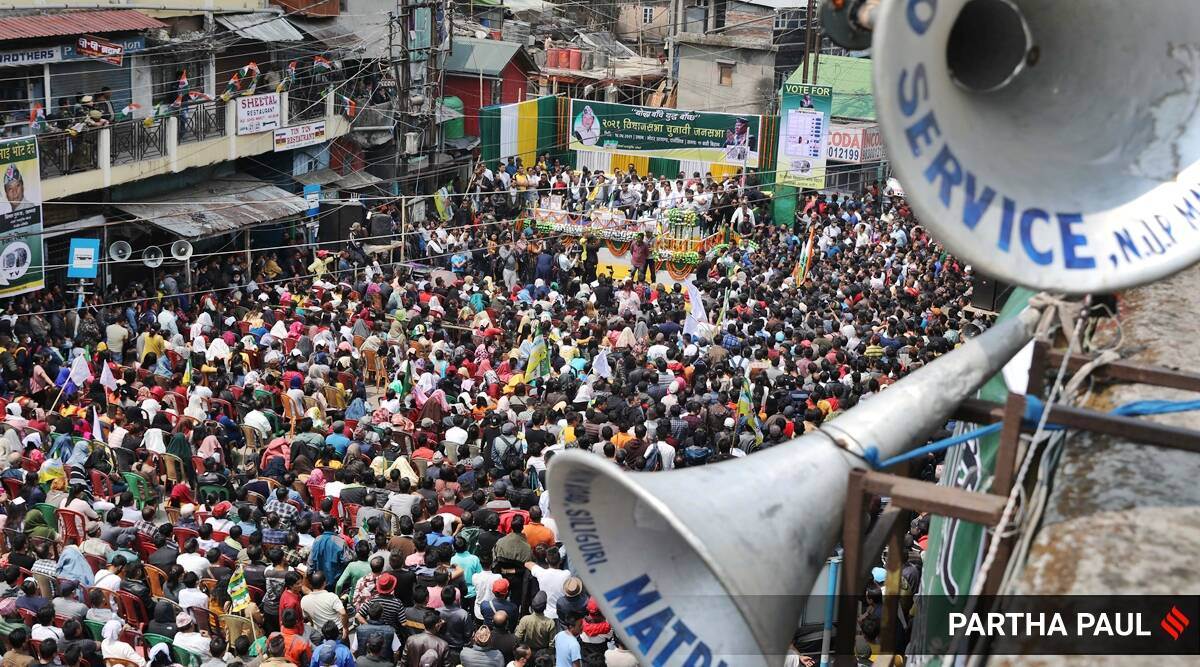
The Madras High Court’s strong words for the Election Commission (EC) on Monday may have a basis.
A scrutiny of the EC’s announcements starting from February 26, when it declared the schedule for five Assembly elections, to April 22, when it put stringent curbs on campaigning in West Bengal, shows that the fierce second Covid surge registered as hardly a blip on its radar.
Ironically, its ban on roadshows, vehicle rallies, and public meetings of over 500 people in West Bengal came as late as April 22 and an hour after Prime Minister Narendra Modi cancelled his four rallies scheduled there the next day.
This, even though the Trinamool Congress and the Congress had filed petitions with the EC urging it to end campaigning and reschedule the remaining election dates in West Bengal in the wake of the Covid surge.
Significantly, by February 26, when the poll schedule was announced, the Centre had already warned at least two poll-bound states (Tamil Nadu and Kerala) about a spike in their daily new cases. But the EC merely reiterated the precautions it had put in place for the Bihar Assembly elections when the curve was steadily falling.
A day later, West Bengal was also added to the list of states flagged by the Centre as reporting an increasing number of new cases.
By March 31, when the last two phases (Phase 7 and 8) of West Bengal elections were notified, cases there were steadily climbing, 982 new infections compared to just about 320 barely 10 days earlier.
Elsewhere, the second wave was raging. A total of 72,330 new cases were recorded nationally and the daily death count had risen to more than 450 by March 31.
By April 15, the TMC started requesting the Commission to club the remaining phases of elections in the state. However, on April 15, the EC spokesperson denied any plans for changing the election schedule.
On April 16, only after the daily case count had crossed 2 lakh, the EC, for the first time, acknowledged an “unprecedented public health situation” and imposed curbs on campaigning – but for activities between 7pm and 10 am.
It also extended the silence period for campaigning from 48 hours to 72 hours before voting day for the phases on April 22, 26, and 29. On this day, the total new cases in West Bengal was almost 7,000.
The TMC had urged the EC to merge the remaining three phases of voting into one, and the Congress had suggested that voting be postponed until after Ramzan. This, the Congress argued, would give time for the fresh wave to wane. In its replies to both parties on April 21, the EC turned down the suggestions, citing legal and resource constraints.
By this time, West Bengal’s daily Covid case count was almost 10,000 – a 10-fold jump since April 1.
A former senior EC officer said it was legally possible to merge the last two phases since their dates of notification were same: March 31. “The RP Act states the gap between the date of withdrawal of candidature and the date of voting should be at least 14 days. If the Commission wanted, it could have issued a fresh notification for either postponing the 7th phase of voting till the 8th phase or reschedule the last phase and hold it with the 7th phase. This is possible since the date of notification for both phases was the same,” he said,
A senior EC official, however, said that even if it’s legally possible, it would have been a challenge to arrange enough forces to hold elections to about 70 seats together at short notice.
- The Indian Express website has been rated GREEN for its credibility and trustworthiness by Newsguard, a global service that rates news sources for their journalistic standards.

